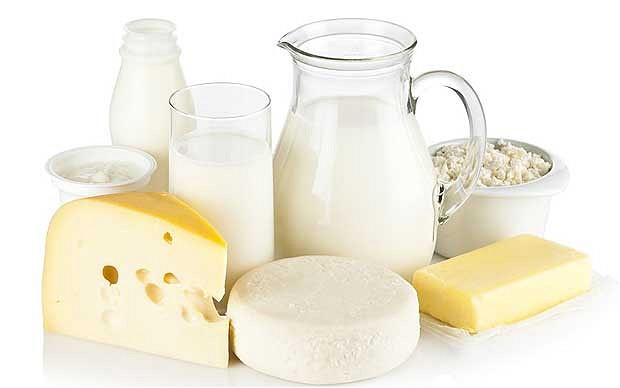USDA, FDA sign MOU to support dairy exports
MOU outlines how agencies will collaborate to ensure dairy export markets remain open when new foreign requirements arise.
October 2, 2020

The U.S. Food & Drug Administration and the U.S. Department of Agriculture have signed a memorandum of understanding (MOU) that will enable the agencies to take a concerted, modern approach to support the export of U.S. milk and milk products worldwide.
The U.S. exports $6 billion worth of milk and milk products annually. In their respective roles of food safety, marketing and trade facilitation, FDA and USDA have complementary programs to support the exportation of these domestic products. Increasingly, U.S. dairy exporters face challenges in the global marketplace from trade partners requiring additional information and assurances. This has resulted in the need for an increased level of coordination by regulators to help address requests and to facilitate the trade of safe and wholesome products from the U.S.
This MOU outlines an effective and efficient framework to leverage the collective strengths of FDA and USDA.
FDA is responsible for ensuring that milk and milk products are safe and wholesome, as labeled through enforcement of the Federal Food, Drug & Cosmetic Act. This is accomplished, in part, by inspecting the production, processing and distribution of foods and examining samples to ensure compliance with FDA’s statutory requirements. In addition, the agency engages with international regulators and stakeholders regarding the safety of U.S. milk and milk products. FDA will continue in its role as the competent authority, engaging directly with foreign authorities, as needed, on food safety matters and providing oversight to more than 6,000 firms that produce dairy products.
USDA, through its dairy grading service, is the lead agency on issuing dairy sanitary certificates, coordinating interagency collaboration related to U.S. exports of milk and milk products and negotiating with foreign countries on certifications to meet their import requirements.
Through this MOU, FDA and USDA said they remain committed to facilitating the efficient exporting of milk and milk products.
The U.S. Dairy Export Council (USDEC) and the National Milk Producers Federation (NMPF) worked with both agencies to advance this new approach to dairy export collaboration and welcomed the MOU.
“Today’s announcement of an interagency MOU on dairy trade between USDA and FDA is the result of years of conversation and efforts between stakeholders within the U.S. dairy industry and the U.S. government to establish consistent guidance on tackling the rising number of export challenges facing our industry. This MOU will help our industry continue to grow in an increasingly competitive global environment,” USDEC president and chief executive officer Tom Vilsack said.
NMPF president and CEO Jim Mulhern added, “This new partnership ensures that the staff at USDA and FDA are working together in the most efficient way possible to lower barriers for our farmer’s dairy exports. Increasing U.S. dairy exports will strengthen the health of our farmers and rural communities, which is more important than ever as America’s dairy industry faces new and unprecedented challenges. We appreciate all of the hard work from both agencies and stand ready to support the USDA and FDA’s commitment to open new doors for U.S. dairy exports.”
International Dairy Foods Assn. (IDFA) president and CEO Dr. Michael Dykes said about the MOU: “IDFA has been a tireless advocate for this kind of federal agency efficiency and cooperation, and seeing this collaborative effort come to fruition to support U.S. dairy exports is a tremendous accomplishment and a huge value add for the dairy industry. IDFA appreciates the efforts of USDA and FDA to finalize this MOU and facilitate our industry’s global growth.”
Beyond individual agency responsibilities, the MOU outlines how the agencies will communicate and collaborate to ensure that dairy export markets remain open when new foreign requirements arise requiring the U.S. government’s response, such as recently implemented or revised certificates in China or Taiwan. The MOU also provides a published reference of each agency’s involvement in the export of U.S. dairy products, which will help address questions from foreign governments that previously may not have understood that more than one U.S. agency is involved in dairy exports.
“In recent years, more and more countries have erected obstacles and barriers to U.S. dairy exports, including increasingly complex requirements for statements, certificates, questionnaires and facility listings,” Dykes said. “While the U.S. government opposes overly burdensome requirements on behalf of U.S. food and agricultural exporters, U.S. officials are barraged with an influx of requests from foreign governments that make it increasingly difficult for all U.S. parties. This MOU keeps our dairy industry and U.S. government a step ahead, positioning U.S. dairy for growth by streamlining roles and resources already in place.”
The U.S. exported $5.9 billion in dairy products in 2019 -- one of the strongest years on record for dairy exports.
The MOU is effective immediately and can be reviewed here.
You May Also Like



